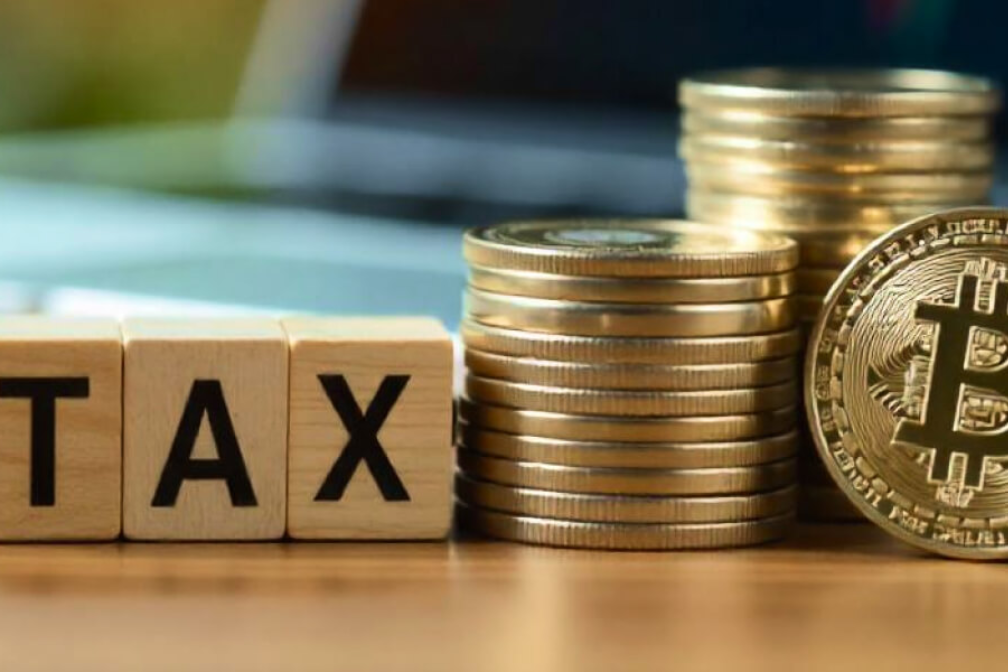
South African Republic
South Africa, which has suffered a high number of bitcoin frauds, is claimed to be putting in place a regulatory roadmap that would result in a regulatory framework.
The greatest swindle happened in April 2021, when the two founders of Africrypt, an African-based cryptocurrency exchange, Raees Cajee and Ameer Cajee, vanished with $3.8 billion in Bitcoin.
In addition, Mirror Trading International vanished with $170 million in cryptocurrencies in January 2021.
Korea, South
South Korea will introduce new regulations to improve control of digital assets in March 2021.
To operate in South Korea, all digital asset managers, suppliers, and exchanges must be registered with the Korea Financial Intelligence Unit.
To register with this unit, all exchangers must be certified by the Information Security Management System, and all consumers must have real name bank accounts.
It also requires that the exchange's CEO and board members have not been convicted of any crimes and that the exchange has sufficient deposit insurance to cover losses caused by hacking.
Turkey
The Central Bank of the Republic of Turkey, Turkey's central bank, has prohibited the usage of cryptocurrencies and crypto assets for making purchases beginning on April 30, 2021, citing considerable transaction risks.
Salvadore
El Salvador stated on June 9, 2021, that it would become the first country to accept Bitcoin as legal money.
India
At the moment, neither India restricts nor permits investing in the cryptocurrency market.
The Reserve Bank of India's ban on cryptocurrencies was repealed by the Supreme Court of India in 2020.
Since then, bitcoin investment has been recognised legal, however there is still doubt surrounding the extent and payment of tax on revenue derived from it, as well as its regulatory framework.
However, it is expected that the Indian Parliament would soon introduce legislation to either ban or control the cryptocurrency industry in India.
A leading public policy lawyer and Vice President of SAARCLAW (South Asian Association for Regional Co-operation in Law) Hemant Batra stated to a well-known online publication that the "cryptocurrency market has now become very big with involvement of billions of dollars in the market thus, it is now unattainable and irreconcilable for the government to completely ban all types of cryptocurrency."
He proposed regulating the bitcoin market rather than outright prohibiting it. In this sense, he advocated for adhering to IMF and FATF rules.
Legality
The legal position of cryptocurrencies varies greatly between countries and is currently unclear or evolving in many of them.
According to at least one research, broad generalisations about the use of Bitcoin in criminal financing are greatly exaggerated, and blockchain analysis is an useful crime fighting and information collecting tool.
While some nations openly permit their usage and commerce, others prohibit or limit it.
According to the Library of Congress in 2018, eight nations have a "absolute ban" on trading or using cryptocurrencies: Algeria, Bolivia, Egypt, Iraq, Morocco, Nepal, Pakistan, and the United Arab Emirates.
Bahrain, Bangladesh, China, Colombia, the Dominican Republic, Indonesia, Iran, Kuwait, Lesotho, Lithuania, Macau, Oman, Qatar, Saudi Arabia, and Taiwan are among the 15 countries with a "implicit prohibition."
State and provincial securities authorities in the United States and Canada are investigating "Bitcoin frauds" and ICOs in 40 jurisdictions, coordinated by the North American Securities Administrators Association.
Various government organisations, departments, and courts have classified bitcoin differently.
The China Central Bank restricted Chinese financial institutions from dealing with Bitcoins in early 2014.
Though cryptocurrency ownership is legal in Russia, residents are only permitted to purchase products from other residents using Russian roubles, whereas nonresidents are permitted to use foreign money.
Regulations and prohibitions that apply to Bitcoin are likely to apply to other cryptocurrency systems as well.
The Bank of Thailand announced intentions to launch its own cryptocurrency, the Central Bank Digital Currency, in August 2018. (CBDC).
Advertising prohibitions
Advertisements for cryptocurrencies have been temporarily blocked on Google, Twitter, Bing, Snapchat, LinkedIn, and MailChimp. Bitcoin ads are also restricted on Chinese internet portals Baidu, Tencent, and Weibo.
Similar restrictions apply to the Japanese platform Line and the Russian platform Yandex.
An uncontrolled global economy's legal concerns
Since the launch of Bitcoin in 2009, the popularity and desire for online currencies has risen, as have concerns that the unregulated person-to-person global market that cryptocurrencies allow may constitute a threat to civilisation.
There is widespread concern that cryptocurrencies may become tools for anonymous cyber criminals.
Cryptocurrency networks are unregulated, which has been criticised as enabling criminals to escape taxes and launder money.
Money laundering difficulties exist in conventional bank transactions as well, although with bank-to-bank wire transfers, for example, the account holder must at the very least provide a confirmed identification.
Transactions involving the usage and exchange of these cryptocurrencies are independent of traditional banking institutions, making tax evasion easier for individuals.
Because taxable income is calculated primarily on what a receiver discloses to the revenue agency, it becomes incredibly difficult to account for transactions done using existing cryptocurrencies, a complicated and difficult-to-track means of exchange.
Most cryptocurrencies' anonymity systems may potentially be used to launder money more easily.
Rather than a complex web of financial players and offshore bank accounts, laundering money using cryptocurrencies may be accomplished through anonymous transactions.
Cryptocurrency complicates legal enforcement against extremist groups, hence strengthening them.
White nationalist Richard Spencer went so far as to call Bitcoin the "alt-right money."
Theft, loss, and fraud
Mt. Gox, the world's largest Bitcoin exchange, filed bankruptcy in February 2014.
The firm stated that it had lost approximately 750,000 Bitcoins belonging to their clients, most likely as a result of theft. This amounted to nearly 7% of all Bitcoins in existence, valued at $473 million.
Mt. Gox blamed hackers for exploiting the network's transaction malleability issues.
Bitcoin's price plunged from over $1,160 in December to around $400 in February.
Tether stated on November 21, 2017, that it had been hacked and had lost $31 million in USDT from its primary treasury wallet. On December 7, 2017, the Slovenian cryptocurrency exchange Nicehash revealed that hackers had stolen more than $70 million from a corporate computer.
Yapian, the owner of South Korean exchange Youbit, declared bankruptcy on December 19, 2017, following two hacks that year.
Customers were still given access to 75% of their assets.
Unknown hackers kidnapped and misused Bitcoin Gold transactions in May 2018.
Exchanges lost an estimated $18 million, and Bittrex delisted Bitcoin Gold when it failed to pay its portion of the losses.
Homero Josh Garza was sentenced to 21 months in prison on September 13, 2018, followed by three years of supervised release.
Garza founded GAW Miners and ZenMiner in 2014, admitting to being a member of a pyramid scam in a plea bargain, and pled guilty to wire fraud in 2015.
Separately, the Securities and Exchange Commission brought a civil enforcement action against Garza, who was ordered to pay a $9.1 million fine plus $700,000 in interest.
The SEC's lawsuit claims that Garza provided "investment contracts representing interests in the profits they believed would be earned" from mining through his enterprises.
Hackers stole $530 million in cryptocurrency from Japanese exchange Coincheck in January 2018.
In June 2018, the South Korean exchange Coinrail was hacked, resulting in the loss of nearly $37 million in cryptocurrency.
The attack exacerbated a $42 billion bitcoin selloff that was already underway.
On July 9, 2018, the cryptocurrency exchange Bancor, whose coding and financing have been criticised, had $23.5 million in bitcoin stolen.
According to a 2020 EU investigation, customers lost crypto-assets worth hundreds of millions of dollars due to security breaches at exchanges and storage providers.
Between 2011 and 2019, the number of recorded breaches per year varied from four to twelve.
More than a billion dollars in crypto assets were reported stolen in 2019.
Stolen valuables "often end up in illicit markets and are used to fuel more criminal activities."
According to a 2020 report by the United States Attorney General's Cyber-Digital Task Force, the majority of illicit cryptocurrency uses fall into three categories: "(1) financial transactions associated with the commission of crimes; (2) money laundering and the shielding of legitimate activity from tax, reporting, or other legal requirements; or (3) crimes, such as theft, directly implicating the cryptocurrency marketplace itself."
"The research concludes that "for cryptocurrency to reach its genuinely transformational potential, these dangers must be addressed," and that "the government has legal and regulatory instruments available to counter the concerns posed by Bitcoin’s criminal applications.
"The risk of using cryptoassets like Bitcoin for money laundering and terrorist financing is classified as "medium" in the UK 2020 national risk assessment, which is a detailed review of the threat of money laundering and terrorist financing in the UK (from "low" in the previous 2017 report).
According to legal specialists, the money laundering prospects may be more apparent than genuine.
According to Chainalysis, a blockchain analysis company, criminal activities including as cybercrime, money laundering, and terrorist funding accounted for only 0.15 percent of all crypto transactions in 2021, totaling $14 billion.
Monkey Kingdom, a Hong Kong-based NFT project, lost USD 1.3 million in cryptocurrencies in December 2021 due to a phishing link utilised by the hacker.











